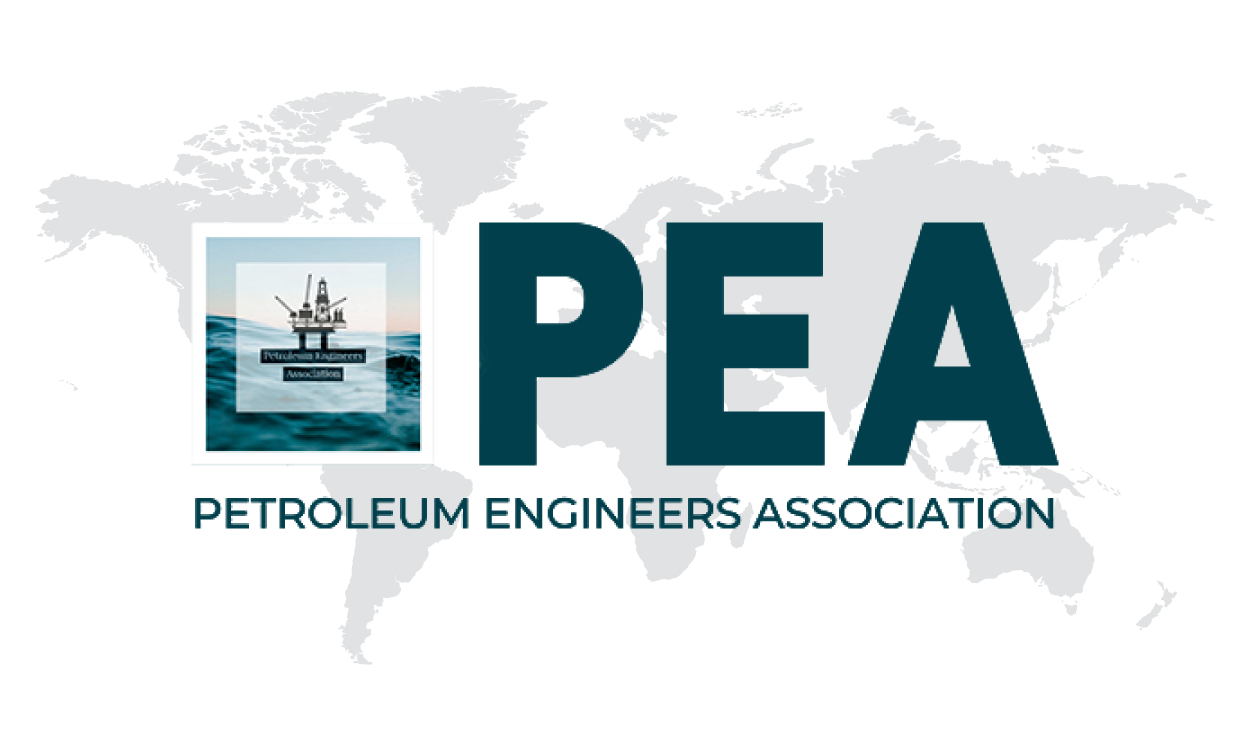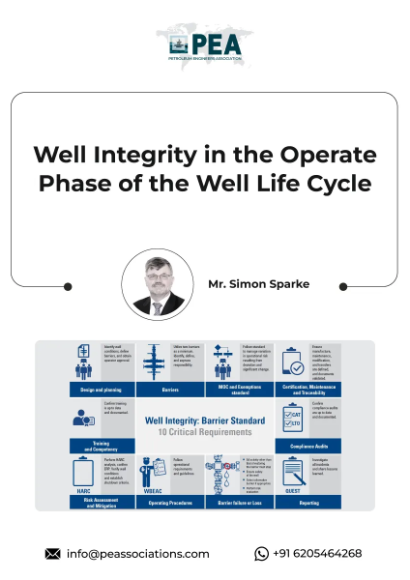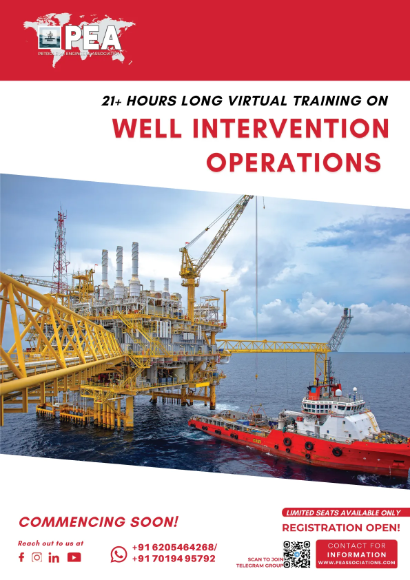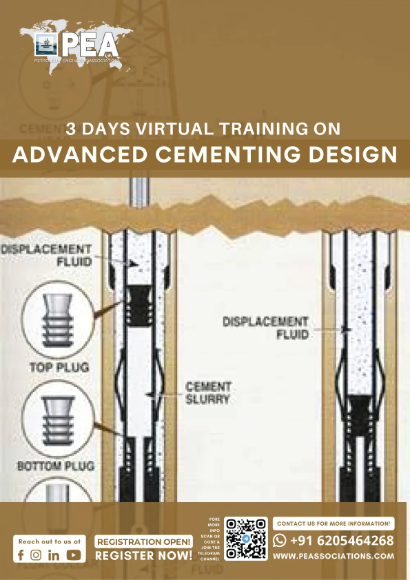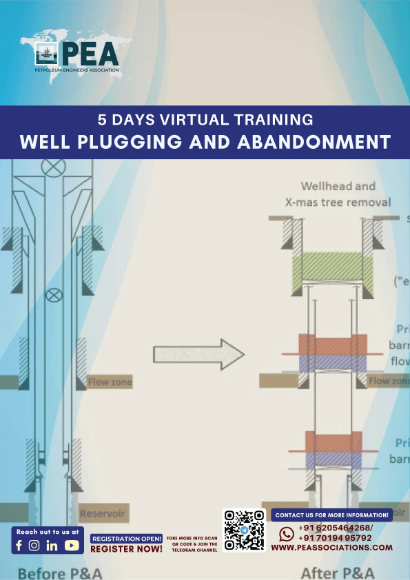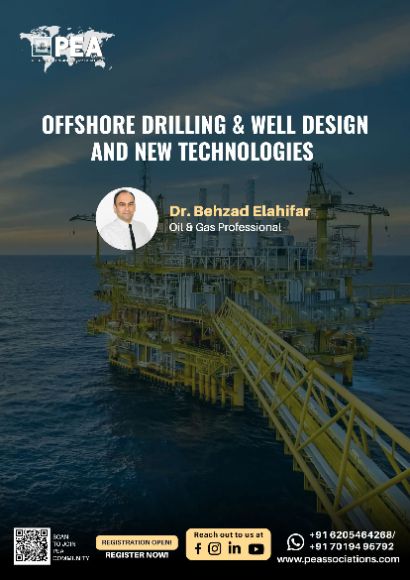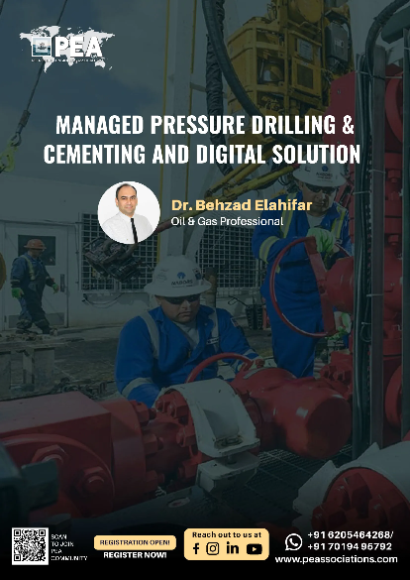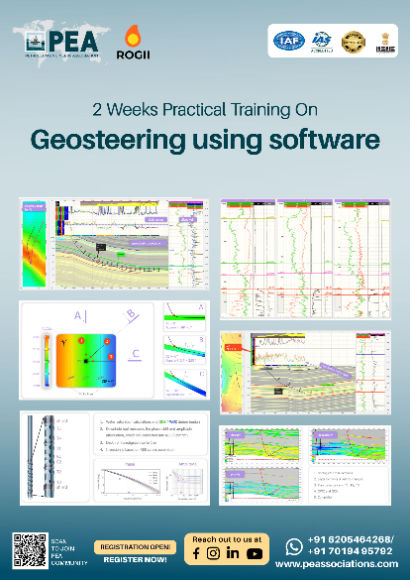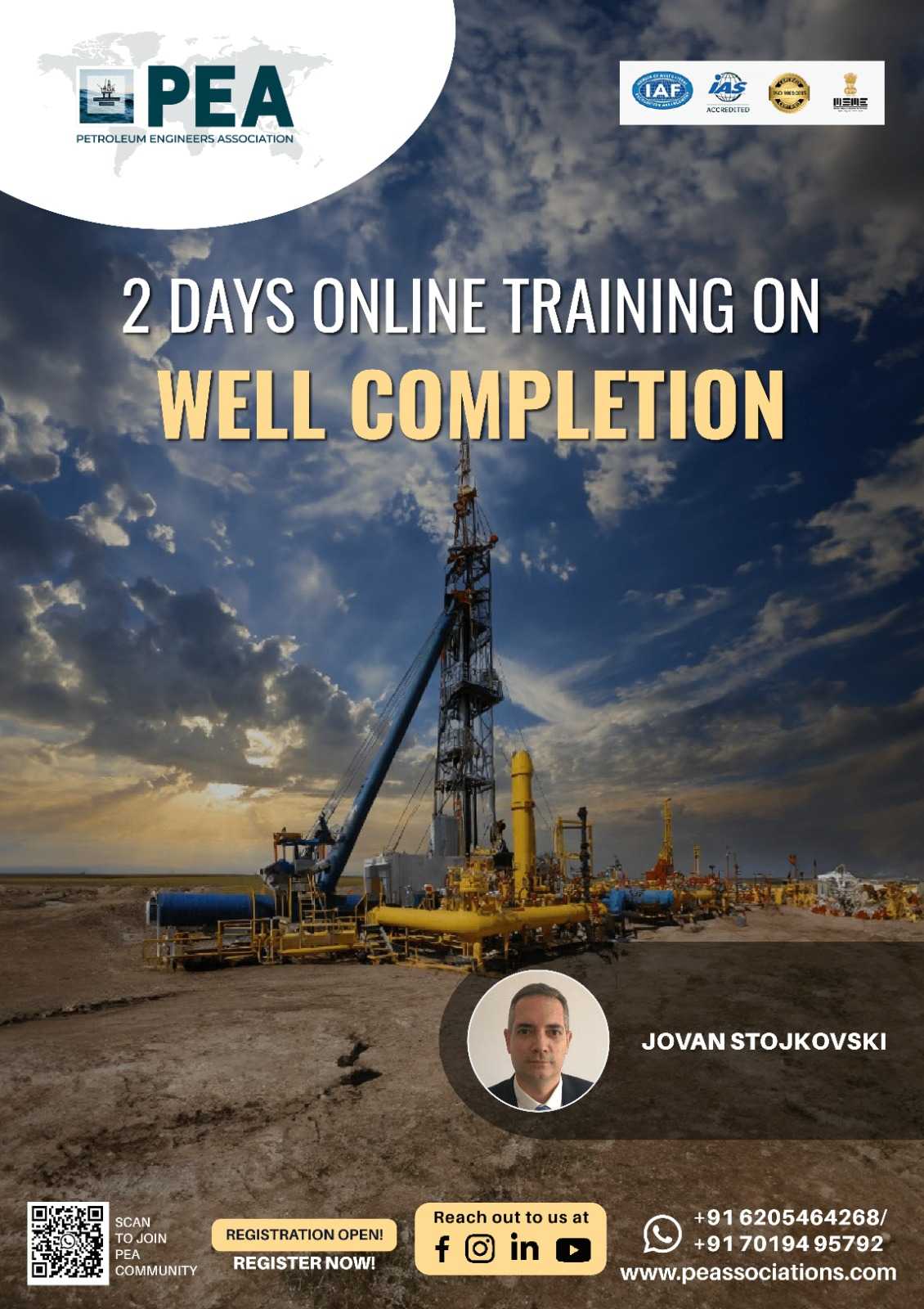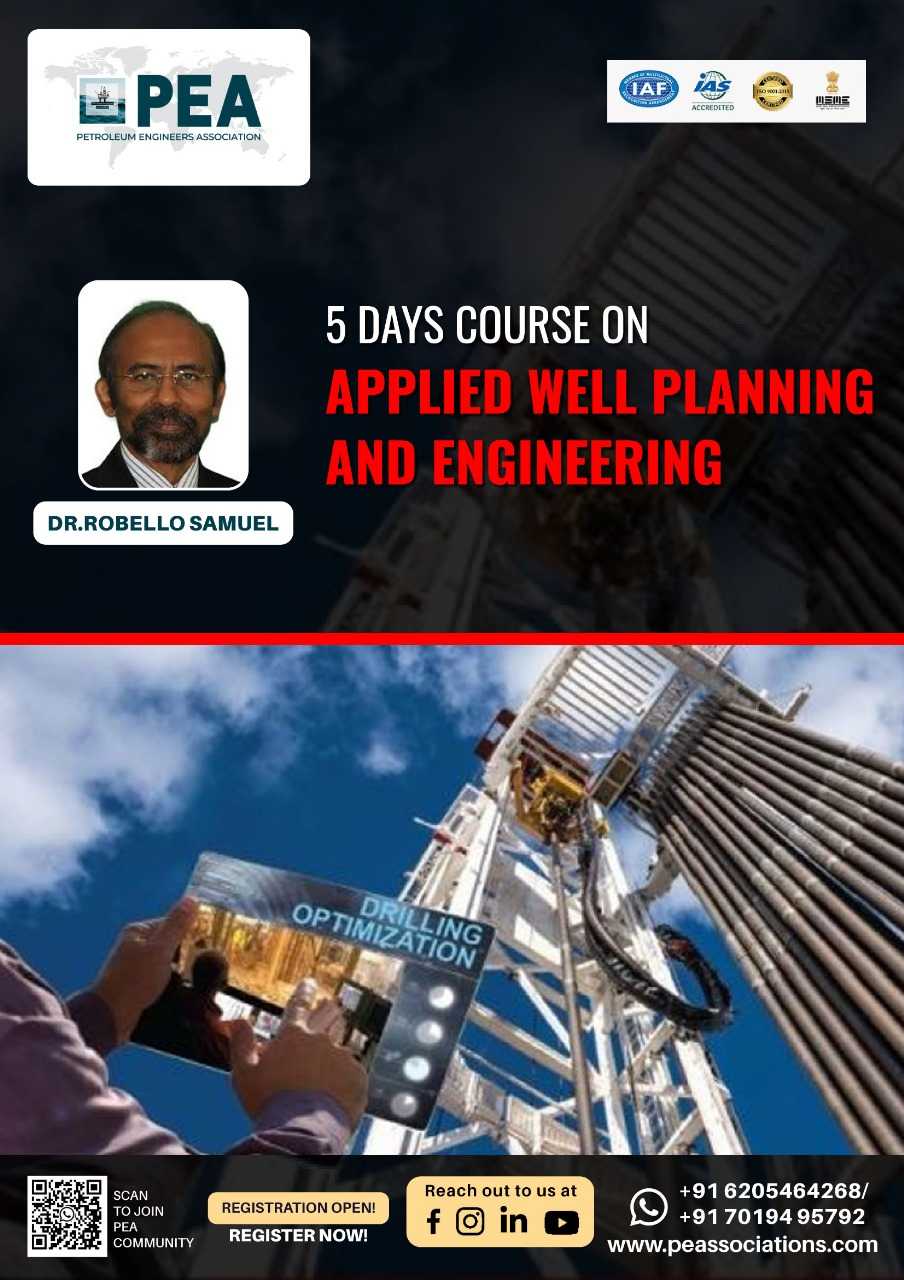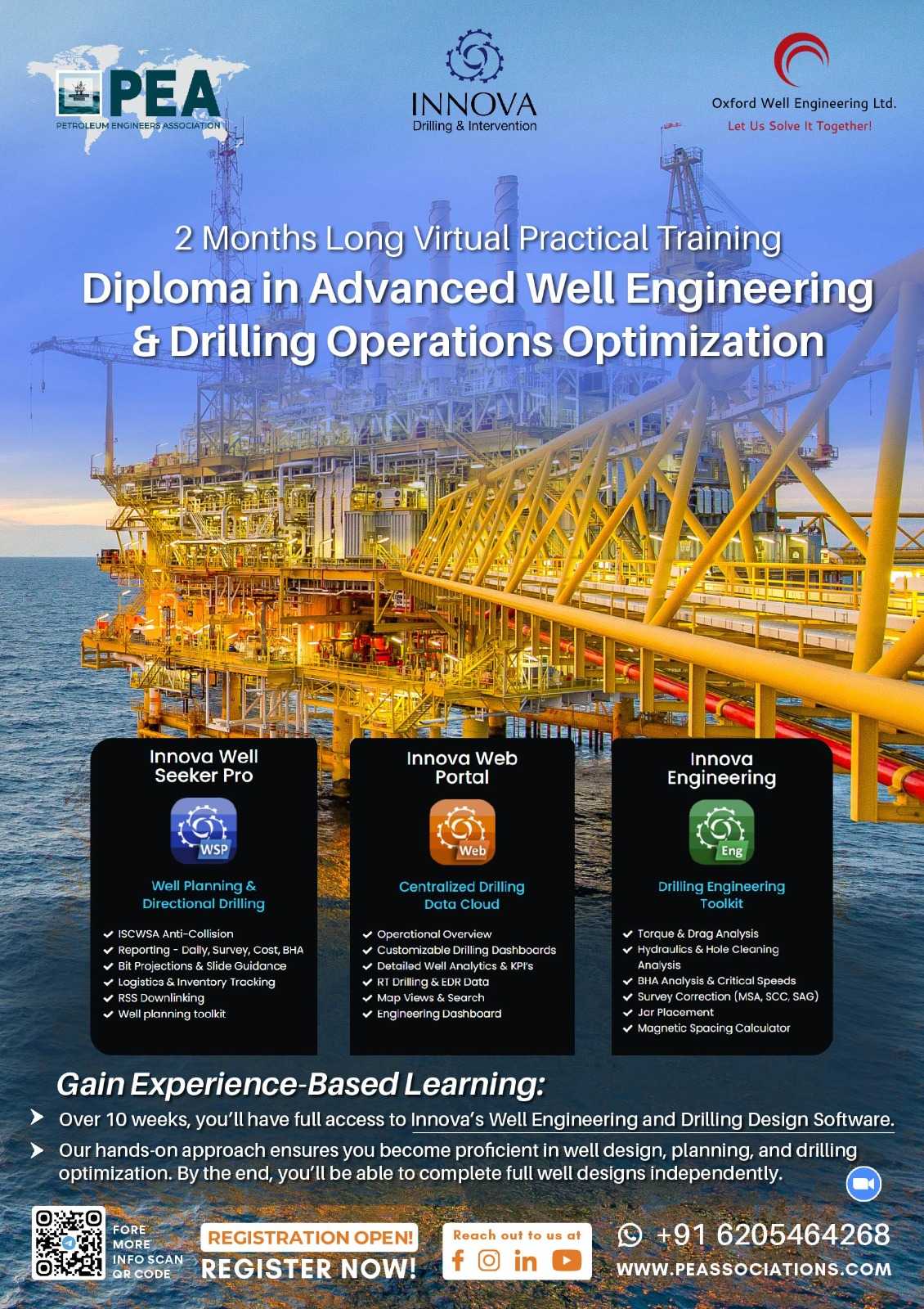Well Integrity in the Operate Phase of the Well Life Cycle
Have Questions ?
Well Integrity in the Operate Phase of the Well Life Cycle -
Boost your team's skills and your budget! Enjoy group discounts for collaborative learning. Send an inquiry to info@peassociations.com.
Well Integrity in the Operate Phase of the Well Life Cycle
This online course is designed to provide participants with a thorough knowledge of well integrity management and risk assessment in producing assets. Based on regulatory requirements and using real examples and exercises from around the world, this represents best practice integrity management within the oil and gas industry.
Description
Well integrity is central to safe, reliable, and efficient oil and gas operations. In the operate phase, when wells are producing or injecting, maintaining integrity becomes critical to preventing leaks, avoiding incidents, and ensuring asset longevity.
This course explores the challenges and solutions related to well integrity in the operate phase of the well life cycle. It covers barrier philosophy, integrity standards, monitoring practices, diagnostics, regulatory compliance, and intervention strategies. Through real-world case studies and practical examples, participants will gain the skills required to manage integrity risks and implement proactive measures that protect people, the environment, and business performance.
As wells age and operating conditions change, maintaining well integrity requires a disciplined and systematic approach. Failures in well integrity can lead to costly downtime, environmental impact, safety incidents, and reputational damage.
This training program equips participants with a deep understanding of well integrity requirements during the operate phase of the well life cycle. It introduces industry standards, regulatory frameworks, and proven methodologies to ensure wells remain fit-for-purpose and compliant throughout their productive life.
After completing this course, participants will understand well integrity management principles, have a good understanding of the data collection, its management and the tell tales signed of potential problems, the importance of data recording and routine maintenance.
This online course is designed to be highly interactive, and using Power Point, Video clips, Case Studies and the trainers’ anecdotal experience, attendees will be encouraged to ask questions and participate in the modules.
Participants will be asked to complete a questionnaire prior to starting the course so the instructor can adapt the course to the issues identified.
The course uses a blend of:
• Interactive presentations led by industry experts.
• Case studies from real-world operations.
• Group exercises and problem-solving workshops.
• Discussions to share best practices and lessons learned.
Upon completion, organizations can expect:
• Improved safety performance and reduced risk of incidents.
• Cost savings through proactive well integrity management.
• Enhanced compliance with industry standards and regulations.
• Extended well life and improved asset reliability.
• Strengthened reputation for safe and responsible operations.
• Building competence in well integrity management practices.
• Gaining confidence in monitoring and managing barrier systems.
• Enhancing problem-solving skills for well integrity challenges.
• Strengthening their career prospects in well operations and asset management.
• Contributing directly to safer, more reliable well performance.
The course is designed for professionals in the oil and gas industry who are involved in the design, construction, and operation of wells from the following disciplines -:
• Production maintenance
• Production operations
• Drilling Engineering
• Safety Engineering
• Well Intervention
• Well Integrity Engineering
• Asset Management
The course will feature 20 modules over the 5 x ½ days of the course. These are :-
• Module 1 – Introduction to Well Integrity in the Operate Phase
• Module 2 - Guidelines and standards
• Module 3 - Material selection
• Module 4 - Well Construction
• Module 5 – Well Handover, Start- up and Operate.
• Module 6 - MAASP principles and management
• Module 7- Subsurface Safety Valves, Annulus Safety Valves and Storm Chokes
• Module 8- Christmas Trees and Wellheads
• Module 9 - Surface Valves and Tree Maintenance
• Module 10 - Well Integrity Management Systems (WIMS)
• Module 11 - Flow Assurance
• Module 12 - Sustained Casing Pressure
• Module 13 - Asset Life Extension
• Module 14 - Management of Change
• Module 15 - Case studies
• Module 16 – Risk Assessment
• Module 17 - Competency
• Module 18 - Dispensations/Derogations
• Module 19 - Well Abandonment
• Module 20 - Wrap up, final Q&A
On successful completion of this training course, PEA Certificate will be awarded to the delegates
Simon Sparke is a subject matter expert for Well Integrity in the Operate Phase with over 45 years’ experience in the oil and gas industry. He has worked with many of the world leaders and regulators to improve the understanding of well integrity. He was head of Well Integrity for Tullow Oil and pioneered the implementation of a Well Integrity Management System (WIMS) and all the associated documentation and training to support the company wide range of well types and operating environments. This led to the publication of the SPE paper entitled ‘Seven Pillars of Well Integrity’ (SPE-142449-MS). Since then, he has built more WIMS for various oil companies and provided the associated training and documentation.
While working for Tullow, he was a co-author for the first international well integrity standard in the phase of the well lifecycle, ISO – 16530.
In conjunction with these achievements, Simon is an established and accredited trainer providing well integrity courses for the international oil and gas community. A further 5 SPE papers have been published which discuss various well integrity problems common to the industry.
In 2021 he was awarded the prestigious position of SPE Distinguished Lecturer and uniquely this was extended for a second year, 2023-2024 and will cover two extensive lecture tours. One across USA, and the second covering China, Borneo, Australia, and New Zealand.
Frequently Asked Questions
All course bookings made through PEA are strictly non-refundable. By registering for a course, you acknowledge and accept that all fees are payable in full and are not subject to refund under any circumstances, including changes in personal or professional commitments or partial attendance.
PEA reserves the right to make reasonable adjustments to course content, trainers, or schedules where necessary, without entitling delegates to a refund. Comprehensive details of each course — including objectives, target audience, and content — are clearly outlined before enrolment, and it is the responsibility of the delegate to ensure the course's suitability prior to booking.
For any inquiries related to cancellations or bookings, please contact our support team, who will be happy to assist you.
